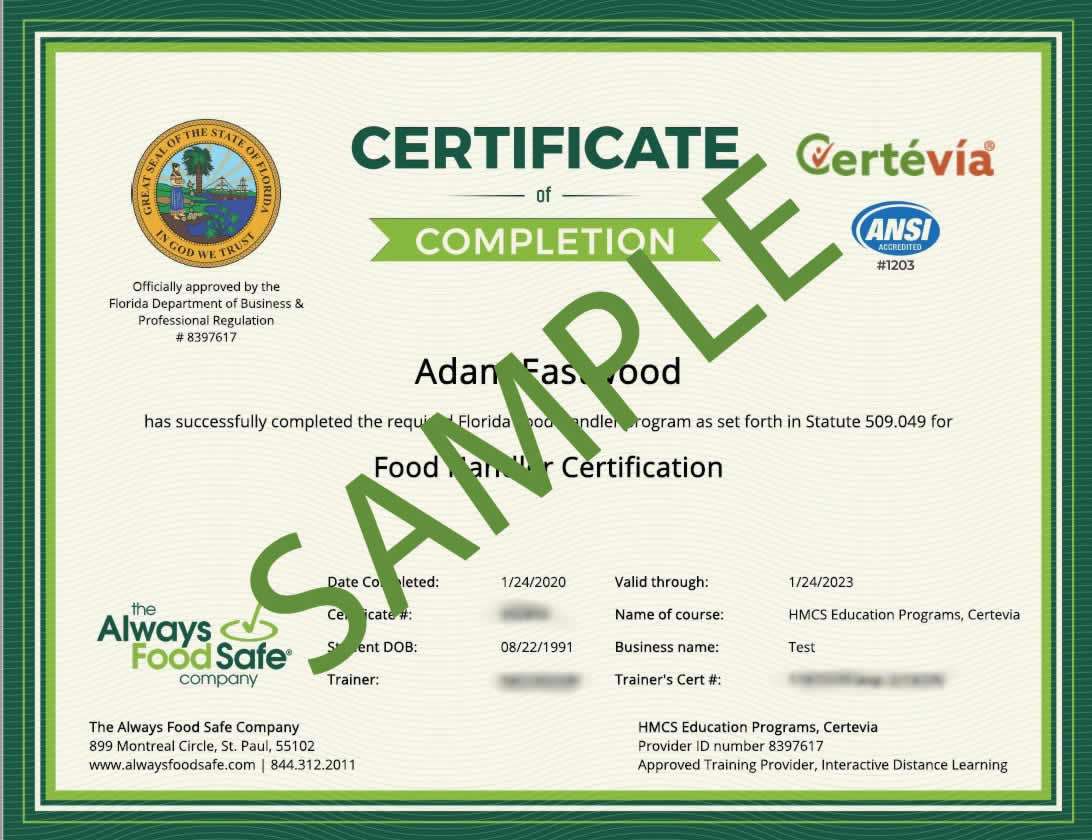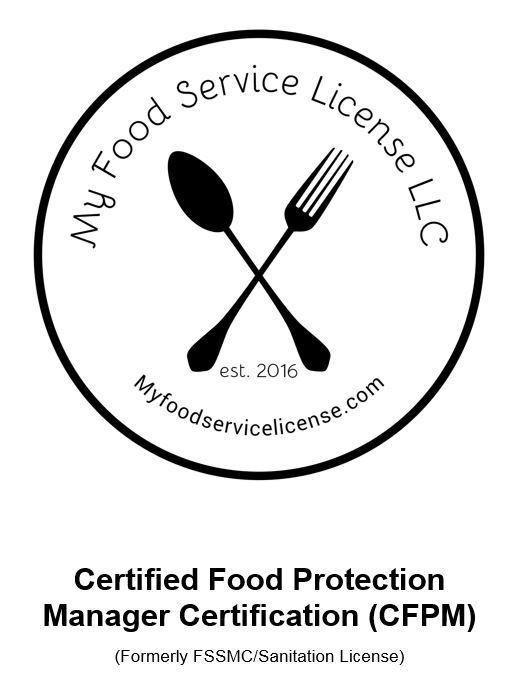Important Tips for Passing the ServSafe Manager Certification Test
Important Tips for Passing the ServSafe Manager Certification Test
Blog Article
Certified Food Supervisor: The Key to Safe and Compliant Workflow
The function of a Qualified Food Manager (CFM) is progressively recognized as crucial in preserving risk-free and certified procedures within the food solution industry. Understanding the full extent of their payments increases inquiries concerning the more comprehensive effects for services and consumer depend on in food safety techniques.
Role of a Certified Food Manager
The function of a Licensed Food Manager is important in ensuring food safety and compliance within food service establishments. These specialists are accountable for looking after all elements of food prep work, handling, and storage space, making certain that facilities abide by wellness policies and industry standards. Their training furnishes them with the expertise to identify possible dangers, apply appropriate food safety methods, and keep hygiene procedures.
Licensed Food Managers play a critical duty in training and managing kitchen personnel, instilling a culture of safety and compliance throughout the establishment. They conduct regular examinations to recognize locations that need improvement and make certain that rehabilitative actions are applied quickly - ServSafe Food Manager Certification. Furthermore, they are tasked with developing and imposing standard procedure (SOPs) associated to food safety and security, which work as a guide for staff members
Their knowledge includes keeping track of food temperature levels, preventing cross-contamination, and handling irritant controls, all of which are necessary to safeguarding public health and wellness. Additionally, Qualified Food Supervisors are frequently the primary point of call throughout health assessments, representing their facilities and attending to any kind of compliance concerns elevated by health authorities. Inevitably, their dedication to food safety and security is important for keeping customer trust and protecting the track record of food service organizations.
Importance of Food Safety
Food security is regularly a top priority in the food solution sector, as it directly impacts public health and wellness and consumer self-confidence. Ensuring that food is taken care of, prepared, and stored securely assists to avoid foodborne illnesses, which can bring about extreme health and wellness difficulties and also casualties. The financial repercussions of foodborne outbreaks can be staggering, resulting in expensive recalls, lawful activities, and significant damage to an organization's online reputation.
Additionally, food security practices foster a society of liability and expertise within food facilities. When workers are learnt proper food handling methods, they are most likely to follow safety procedures, which minimizes the risk of contamination. This not only protects customers but additionally improves operational effectiveness and compliance with regional wellness laws.
Customer recognition concerning food security has actually boosted substantially, leading to enhanced expectations for openness and quality in food service. Establishments that focus on food safety and security are a lot more likely to acquire consumer trust and commitment, inevitably adding to their long-lasting success. Consequently, investing in durable food precaution is not just a regulatory commitment; it is an essential company method that profits both consumers and food service drivers alike.
Training and Accreditation Process
Comprehending the training and certification procedure for food supervisors is critical for maintaining high criteria of food security within any establishment. The procedure commonly begins with detailed training programs that cover crucial subjects such as foodborne health problems, correct food managing strategies, and hygiene practices. Food Manager Certification. These programs can be delivered with various formats, consisting of on the internet training courses, in-person classes, or workshops, and are developed to equip food supervisors with the knowledge needed to stop food safety and security dangers
Upon conclusion of the training, candidates must pass a qualification test, which evaluates their understanding of food security concepts and policies. The examination is usually carried out by approved companies, making sure that the accreditation is identified and respected within the market.
Once accredited, food managers are needed to stay present with ongoing education and learning and training to preserve their qualifications. This might consist of going to refresher course training courses or taking part in workshops that address new food safety methods and guidelines. In general, a durable training and qualification process not just enhances his comment is here the skills of food supervisors but additionally contributes to the overall security and compliance of food procedures in any type of establishment.
Conformity With Laws
Conformity with laws is a crucial aspect of a food manager's responsibilities, as it makes certain that facilities follow regional, state, and government food safety standards. These regulations are created to alleviate threats related to foodborne illnesses and advertise secure food handling practices. A certified food supervisor (CFM) plays a pivotal role in interpreting and applying these requirements within their procedures.

CFMs need to additionally create and carry out surveillance systems to on a regular basis examine compliance with food safety techniques. Eventually, efficient conformity administration fosters a culture of safety and accountability within food service operations.

Advantages of Working With CFMs
Employing certified food managers (CFMs) supplies considerable advantages for food service establishments looking for to boost their functional effectiveness and security criteria. CFMs possess specialized understanding of food safety and security policies, hygiene methods, and threat monitoring, ensuring compliance with federal and local laws. This competence helps in reducing the likelihood of offenses that can lead to short-lived closures or pricey fines.
Furthermore, CFMs play an essential duty in training team, fostering a society of food safety within the facility. They implement standardized treatments, display food handling methods, and perform routine audits, substantially decreasing the risk of foodborne diseases. This not only shields clients but likewise enhances the establishment's track record.
Additionally, employing CFMs can bring about boosted functional efficiency. Their training makes it possible for team to function a lot more efficiently, reducing waste and maximizing productivity. Facilities with qualified food supervisors frequently experience higher customer fulfillment, as trained employees are better geared up to guarantee top quality solution and food safety and security.

Inevitably, investing in a certified food supervisor is an investment in the long-term success and sustainability of a food service operation, creating a much safer atmosphere for both clients and staff members.
Conclusion
To conclude, the function of a Licensed Food Supervisor is essential in keeping certified and safe food service procedures. Via effective oversight More about the author of food managing practices, recurring personnel training, and adherence to regulatory standards, CFMs play an essential role in mitigating foodborne health problem risks. The financial investment in licensed management not only improves operational performance yet additionally cultivates a society of liability, ultimately benefiting both the facility and its patrons while advertising public wellness and security.
The function of a Qualified Food Supervisor is vital in ensuring food safety and compliance within food solution facilities.Comprehending the training and accreditation procedure for food supervisors is critical for maintaining high standards of food security within any kind of establishment. On the whole, a durable training and accreditation procedure not only boosts the skills of food supervisors but likewise contributes to the overall safety and security and compliance of food operations in any facility.
Working why not look here with licensed food managers (CFMs) supplies considerable advantages for food service facilities looking for to improve their operational efficiency and security requirements. Establishments with certified food supervisors frequently experience higher customer fulfillment, as trained staff members are much better furnished to make certain quality solution and food safety.
Report this page